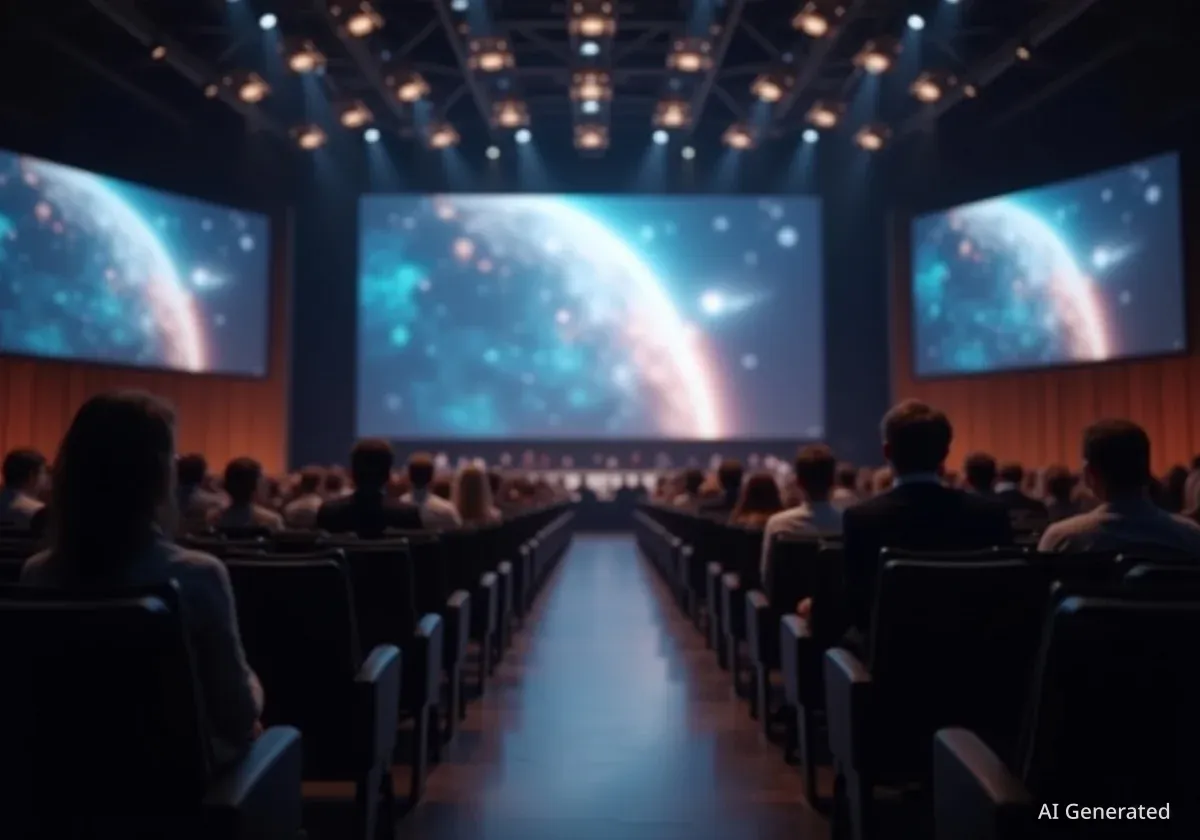The International Telecommunication Union (ITU) is placing space-related policy at the forefront of its international agenda, according to Secretary-General Doreen Bogdan-Martin. Speaking in Washington, she revealed that the upcoming 2027 World Radiocommunication Conference will dedicate 80 percent of its program to space issues, emphasizing the urgent need for global cooperation to manage finite resources like radio-frequency spectrum.
Key Takeaways
- The 2027 World Radiocommunication Conference (WRC-27), hosted in China, will focus heavily on space policy.
- ITU Secretary-General Doreen Bogdan-Martin stressed that global cooperation is essential for managing limited space resources.
- Key agenda items include spectrum for mobile satellite services, direct-to-device connectivity, and a potential lunar communications network.
- The push for cooperation occurs amid significant geopolitical tensions, particularly between the United States and China.
ITU Shifts Focus to Space Governance
Doreen Bogdan-Martin, the head of the United Nations' specialized agency for information and communication technologies, outlined the organization's new priorities at a recent policy conference. During her address on September 19, 2025, at the Research Conference on Communications, Information and Internet Policy (TPRC), she confirmed a major strategic shift towards space.
The conference, held at American University’s Washington College of Law, served as the venue for her announcement that the next World Radiocommunication Conference (WRC-27) will be overwhelmingly dedicated to space. This move reflects the growing importance of satellite technology in global communications and the increasing competition for orbital resources.
What is the World Radiocommunication Conference?
The WRC is a global treaty-making conference held every three to four years by the ITU. Its purpose is to review and, if necessary, revise the Radio Regulations, the international treaty governing the use of the radio-frequency spectrum and satellite orbits. Decisions made at the WRC can impact the future of telecommunications, broadcasting, and space exploration worldwide.
Technical and Regulatory Frontiers
Bogdan-Martin detailed several key areas the ITU is actively exploring. The agency is considering new spectrum allocations to support the expansion of mobile satellite services and the development of direct-to-device connectivity, which allows standard smartphones to communicate directly with satellites.
Furthermore, the ITU is involved in establishing the technical foundations for a future lunar communications network. This forward-looking work is critical for supporting planned missions to the Moon by various national space agencies and private companies.
Artificial Intelligence Standards: Beyond space, Bogdan-Martin highlighted artificial intelligence as another major priority. The ITU has already developed approximately 140 AI-related standards, with around 100 more currently in development to guide the technology's responsible implementation.
Geopolitical Tensions Shape the Agenda
The ITU's push for global cooperation is set against a backdrop of rising international competition. The decision to host WRC-27 in China is significant, as it places a key rival of the United States at the center of critical technology negotiations.
In a direct challenge to Beijing's influence, Washington has recently launched its own bid to host a future ITU conference. This move underscores the strategic importance of the ITU as a venue for setting global technology rules.
Jovan Kurbalija, executive director of the DiploFoundation, previously warned in June that hosting the conference in either the U.S. or China would send a powerful message about global digital alignment and influence over international tech regulations.
The outcome of these geopolitical dynamics will heavily influence how international rules for spectrum and space are negotiated. The central question is whether the ITU can foster genuine cooperation in a politically divided environment.
A History of Contention
The ITU has a history of navigating difficult political landscapes. Bogdan-Martin's tenure itself began with a leadership race that reflected global tensions. In 2022, she competed against Russian candidate Rashid Ismailov for the Secretary-General position, an election that took place amidst the war in Ukraine.
This was not the first time the ITU became an arena for international disputes. A decade earlier, in 2012, negotiations to update the International Telecommunication Regulations collapsed. The central point of disagreement was whether the treaty should extend to cover Internet governance.
The United States and its allies firmly rejected proposals from a bloc including China and Russia, which sought to give the ITU more authority over the internet. This historical friction highlights the long-standing ideological divides that continue to challenge the organization's mission.
A Call for Academic Involvement
During her speech, Bogdan-Martin also made a direct appeal to the academic community. She urged more U.S. universities to join the ITU as members to contribute to its research and policy-shaping work. Currently, only eight American institutions are part of the organization, despite the U.S. being a member since 1908 and having the largest number of private sector participants.
The Path Forward for Space Regulation
As the world enters a new and more crowded era of space activity, the ITU's role has become more critical than ever. The organization is now being tested on its ability to overcome past divisions and serve as a trusted forum for international collaboration.
The decisions made at WRC-27 will have lasting consequences for the future of the satellite industry, global connectivity, and scientific exploration. The challenge for the ITU and its member states will be to find common ground to ensure that space remains a resource that can be used sustainably and peacefully by all nations.





